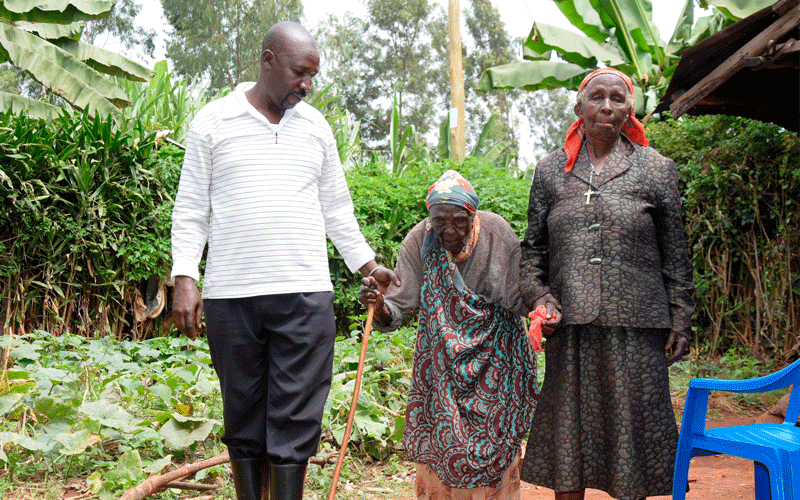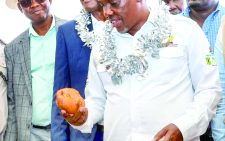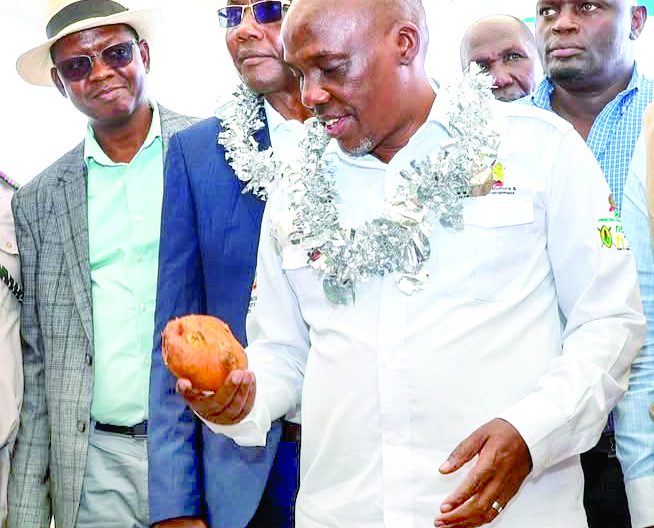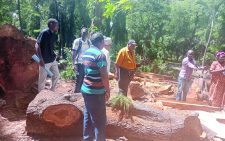Grannies search for answers over missing welfare funds

Battling the vagaries of old age is stressful. But even more nerve-wracking is chasing after dues that should make the sunset years more comfortable.
Theresiah Wairimu from Mang’u village knows this too well as the pain of chasing funds from the cash transfer programme has become an elusive dream that seems near, yet it is so far.
Wairimu, a centenarian, has been knocking on different government offices seeking answers to a riddle that has baffled her for years.
She is among a group of more than 50 elderly women from Gatundu North Sub County in Kiambu County who have not received any money from the government’s cash transfer programme for the last five years.
The delay in releasing the funds, they say, has consigned them to poverty.
Started in 2013, the programme was aimed at lifting older persons from poverty by giving them cash for basic commodities such as food alongside other economic empowerment activities.
The old women said they might end up dying before they enjoy funds from the programme yet the government has been releasing it.
Wairimu says despite being enlisted with the programme and having requisite documentations, they have not been benefitting.
Economic shocks
Instead, the women said they have been left to grapple with economic shocks, especially since the outbreak of Covid-19 pandemic.
Speaking on behalf of frail Wairimu, her daughter Njeri Miring’u, 93, said that every time they confront Social Service Offices, they are given excuses that their identity cards have problems.
“My mum and I have never benefited from the programme that the government thought would cushion us from poverty during our old days.
It’s sad we might die before benefitting yet the money is released quarterly,” she lamented.
Gabriel Njoroge Miring’u, a school driver who takes care of his mother Miring’u and his grandmother Wairimu says since the country recorded its first Covid-19 case precipitating closure of learning institutions, life has not been easy as he has no other source of income.
“It’s been hard for me. I am need to buy them clothing, wash them, feed, and purchase medication.
Unfortunately, I have run out of savings and the cash transfer programme has not been of any help,” he said.
A few kilometres from their home, we find Peris Wairimu Kariuki peeling donated bananas to prepare lunch for her grandchildren.
The centenarian, who lives in a shanty, depends on well-wishers to survive.
She says that since registering for the programme, she has only benefitted once yet she has a bank account, her details were put in the system and was issued with Inua Jamii ATM card.
“I only got Sh12,000 after registering. Since then, the relevant offices have been taking me in circles and sending me from office to another claiming that my details contain anomalies,” she says.
The money, she says, would help her farm her small land from which she would get food for survival instead of relying on infrequent well-wishers.
“I deserted my land as I cannot farm it by myself but if I have the money, I can hire someone to dig and plant food for me.
The money would also help me purchase firewood and some clothes for my grandchildren,” she adds.
Sixty-year-old Hannah Waithera Maina, who was meant to benefit from the programme courtesy of the eight orphans she lives with has also not been receiving a penny.
Maina, who lives in a derelict house and whose sacks-and-old-sheets-made lavatory is falling apart, also says she only received Sh12,000 once after which she was cut out.
Covid-19, she says added salt to a bleeding wound as she can no longer get menial jobs she used to get to support their basic needs.
She now lives at home a hopeless woman waiting for donations.
“The social service offices at the SAUB County headquarters have been sending me from one office to the other.
I have to raise fare to go there yet my problem has never been resolved despite the fact that I am registered,” she said.
Data from the Sub County Social Services office revealed that tens of beneficiaries have not been receiving the programme aid.
Stephen Kung’u, the Sub County officer in charge of the matter says most of the enlisted senior citizens either have shared caregivers or duplicate identity cards while others have a challenge with the numerical state of their identification documents.
“We are, however, on top of things. We have been having the challenges across the country, but we have continuously resolved them for the benefit of our elderly persons,” he says on the phone.
Tip of the iceberg
The encounter in Gatundu North is just a tip in the iceberg as hundreds of elderly persons across the country have been living pitiable lives in spite of being registered in the programme.
Instead of improving lives, most elderly people cite a negative connection between the benefit take-up rate and the poverty rate.
By the end of the financial year ending June 2020, the government had spent Sh59.6 billion in the programme.
Initially targeting all persons aged 70 years and above, the Government has since lowered the age bracket to 65 years, a situation that has seen the programme’s allocation increased.
Beneficiaries of the programme include: 833,129 orphans, more than 47,000 people living with disability and more than 350,000 senior citizens aged above 65 years.










